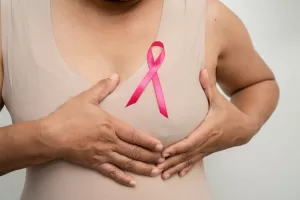Breast Cancer Surgery: Lumpectomy vs. Mastectomy
When faced with a breast cancer diagnosis, you may feel overwhelmed by the treatment decisions ahead. Two of the most common surgical options are lumpectomy and mastectomy. Understanding the key differences between these procedures can help you make an informed choice in consultation with your medical team. This article will explore the pros and cons of lumpectomy versus mastectomy, including factors like cancer type and stage, recovery time, and long-term outcomes. By examining the latest research and expert recommendations, you’ll gain valuable insights to guide your decision-making process during this challenging time.
Breast Cancer Surgery in Singapore
In Singapore, breast cancer surgery plays a crucial role in treatment, with options tailored to each patient’s unique circumstances. Breast cancer surgery Singapore typically involves either a lumpectomy or mastectomy. A lumpectomy removes only the tumor and surrounding tissue, while a mastectomy removes the entire breast. The choice between these procedures depends on factors such as tumor size, location, and patient preferences. Mastectomy Singapore rates remain high, ranging from 43-59% over a 10-year period. For those undergoing mastectomy, breast reconstruction options are available to restore appearance and improve quality of life. Cancer care Singapore centers offer comprehensive treatment plans, combining surgical expertise with advanced therapies for optimal outcomes.
What are the Types of Breast Cancer Surgery?
When facing breast cancer surgery in Singapore, you’ll typically encounter two main options: lumpectomy and mastectomy. Lumpectomy, also known as breast-conserving surgery, involves removing only the tumor and a small amount of surrounding tissue. On the other hand, mastectomy Singapore procedures entail removing the entire breast. Your choice between these breast cancer surgery Singapore options depends on factors like tumor size, location, and personal preferences. Both surgeries may be followed by additional treatments such as radiation or chemotherapy. Cancer care Singapore specialists can guide you through the decision-making process, considering your individual case and long-term health outcomes.
Lumpectomy for Breast Cancer
A lumpectomy, also known as breast-conserving surgery, is a common procedure in breast cancer surgery Singapore. This technique removes the tumor and a small margin of surrounding tissue while preserving most of the breast. According to MD Anderson Cancer Center, lumpectomy is often recommended for early-stage breast cancer and offers several advantages over mastectomy Singapore. These include shorter recovery time, better cosmetic outcomes, and preservation of the nipple area. When combined with radiation therapy, a lumpectomy provides the same low risk of recurrence as a full mastectomy. However, not all patients are suitable candidates for this procedure, and your cancer care Singapore team will help determine the best approach for your specific case.
Mastectomy for Breast Cancer
Mastectomy is a surgical procedure for breast cancer treatment in Singapore that involves removing the entire breast tissue. While it’s a more extensive surgery than lumpectomy, mastectomy may be recommended when tumors are large or multiple, or when clear margins can’t be achieved with breast-conserving surgery. One advantage of mastectomy Singapore is that it may eliminate the need for radiation therapy in some cases. However, it’s important to note that mastectomy is associated with longer recovery times and potential impacts on quality of life. Patients should discuss their options thoroughly with their cancer care Singapore team to make an informed decision.
Breast Reconstruction After Mastectomy
Options for Rebuilding
After a mastectomy in Singapore, breast reconstruction offers a way to restore your body image. There are two main approaches: implant-based and autologous tissue reconstruction. Implants involve a shorter surgery but may need replacement over time. Autologous methods use your own tissue for a more natural result but require a longer recovery. Your choice depends on factors like body type, overall health, and personal preferences. Discuss options thoroughly with your cancer care Singapore team to determine the best approach for you.
Timing Considerations
Breast reconstruction can be immediate or delayed. Immediate reconstruction occurs during the mastectomy Singapore procedure, while delayed reconstruction happens months or years later. The timing often depends on whether you need additional treatments like radiation therapy. Your surgeon will help you decide the optimal timing based on your individual case and treatment plan.
Comparing Lumpectomy and Mastectomy for Breast Cancer
When facing breast cancer surgery in Singapore, understanding your options is crucial. Lumpectomy and mastectomy are two primary surgical approaches, each with distinct characteristics. Lumpectomy, a breast-conserving surgery, removes only the tumor and surrounding tissue, while mastectomy involves removing the entire breast. Your choice may depend on factors like tumor size, location, and personal preference. In Singapore, both procedures are performed with advanced techniques, ensuring optimal cancer care. Studies show that lumpectomy followed by radiation therapy offers similar long-term survival rates as mastectomy for many early-stage breast cancers. Consult with your surgeon to determine the best breast cancer surgery option for your unique situation.
Conclusion
In weighing your options between lumpectomy and mastectomy, remember that there is no universally “right” choice. Your decision should be based on your individual circumstances, preferences, and discussions with your healthcare team. Both procedures have proven effective in treating breast cancer, with similar long-term survival rates. Consider factors such as your cancer stage, family history, and personal comfort level. Ultimately, the goal is to select the treatment that offers you the best chance of recovery while aligning with your quality of life priorities. Whatever you decide, know that you have the strength and support to face this challenge. Your journey is unique, and your choice should reflect what’s best for you.
Disclaimer: The content for this article is for informational purposes only and is not a substitute for professional medical advice, diagnosis, or treatment. Always consult your oncologist with any questions regarding a medical condition. Do not disregard medical advice or delay seeking it based on information from this site.

